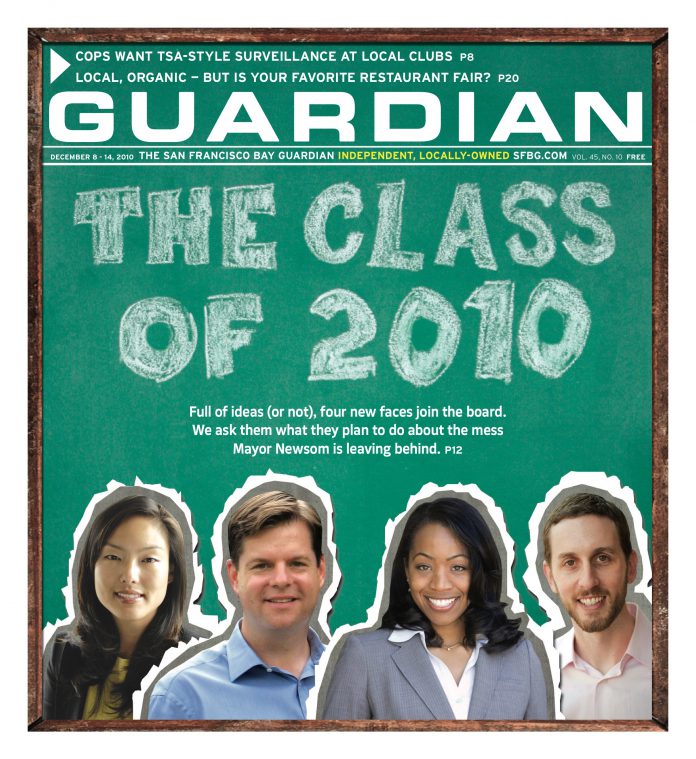arts@sfbg.com
FILM It has been such a feeble year for movies overall that it’s easy to understand why The King’s Speech would incite near-rapture on the festival and Oscar-countdown beats. Films like The King’s Speech have filled a certain notion of “prestige” cinema since the 1910s: historical themes, fully-clothed romance, high dramatics, star turns, a little political intrigue, sumptuous dress, and a vicarious taste of how the fabulously rich, famous, and powerful once lived. Whether derived from literary classics or the historical record, they usually involve aristocracy and British accents, reflecting our perennial escapist jones for Old World gentility.
At its best, this so-called Masterpiece Theatre moviemaking can transcend formula — it would be stupid to lowball the merits of Merchant-Ivory’s Howards End (1992), Terence Davies’ House of Mirth (2000), or Stephen Frears’ The Queen (2006) simply because they’re exquisitely appointed, polite entertainments. At their less-than-best, however, these movies sell complacency, in both style and content.
The King’s Speech purveys a particular fantasy not unlike Cinderella‘s (or Twilight‘s): that of the unappreciated “commoner” whose very special qualities prove exactly what is needed by the remote, glamorous, extraordinary — but lonely and misunderstood! — prince or vampire or whatnot who plucks them from the madding crowd. Here, Colin Firth plays King George VI, forced onto the throne his favored older brother Edward abandoned. This was especially traumatic because George’s severe stammer made public address tortuous.
The special friend he acquires is matey Australian émigré Lionel Logue (Geoffrey Rush, mercifully controlled), a speech therapist whose unconventional methods include insisting his royal client treat him as an equal. This ultimately frees not only the king’s tongue, but his heart — you see, he’s never had anyone before to confide in that daddy (Michael Gambon as George V) didn’t love him enough. Aww.
David Seidler’s conventionally inspirational script and BBC miniseries veteran Tom Hooper’s direction deliver the expected goods — dignity on wry, wee orgasms of aesthetic tastefulness, much stiff-upper-lippage — at a stately promenade pace. Firth, so good in the uneven A Single Man last year, is perfect in this rock-steadier vehicle. Yet he never surprises us; role, actor, and movie are on a leash tight enough to limit airflow.
The stuffiness lifts when George, exasperated and egged on, lets loose a string of childish profanity, his priggish reserve dissolving at last. Absurdly, this sole moment of naughty-boy silliness earned The King’s Speech — a PG prestige picture if ever there was one — its R rating from our wise protector, the MPAA.
THE KING’S SPEECH opens Fri/10 in San Francisco.

